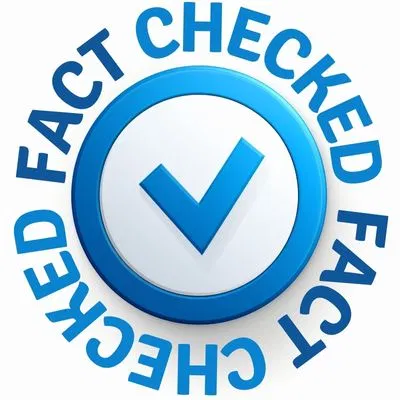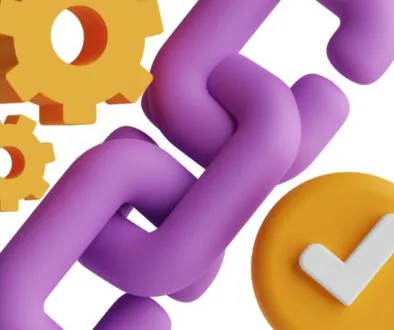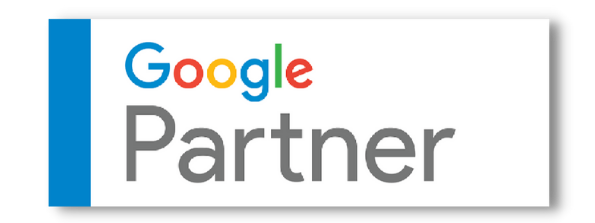The Different Types Of SEO: Which To Focus On And Which To Avoid

Published August 26, 2024
Is your business being overshadowed by competitors in this rapidly evolving digital landscape? Search Engine Optimization (SEO) is critical in boosting online visibility and directing traffic to your site. A solid understanding of SEO techniques is essential. Without it, you risk falling behind. This means missing valuable chances to improve your search engine rankings. It also hinders your ability to connect effectively with your target audience. Don’t let your business get lost in the crowd—understanding SEO is vital to thriving online!
In this article, we’ll examine the various types of SEO, offer insights on which ones to prioritize, and identify those to avoid.
Exploring The Various Types Of SEO
Knowing the different types of SEO is crucial for businesses. It helps them enhance their online presence and increase traffic, ultimately supporting their digital marketing goals. Below are the key types of SEO services and their significance in optimizing your online content.
White Hat SEO
White Hat SEO uses ethical strategies. It follows search engine rules and best practices. These techniques aim to create high-quality content that genuinely meets user needs.
They also incorporate relevant keywords to enhance search visibility. Furthermore, White Hat SEO emphasizes the importance of a seamless user experience. This includes fast loading times, mobile optimization, and intuitive navigation.
By prioritizing these principles, businesses can build trust with search engines and enhance credibility. This results in long-term success and sustainable growth online. This approach fosters positive relationships with audiences and helps avoid search engine penalties.

On-Page SEO (On-Site SEO)
On-page SEO is crucial for digital marketing. It optimizes individual web pages to improve search engine rankings. Key elements include thorough keyword research, which helps pinpoint relevant terms and phrases that potential visitors use.
Creating quality content is essential. It engages readers and also satisfies search engine algorithms. Internal linking is also a priority. It connects different pages on your site, helping search engines crawl your website and keeping users engaged longer. Additionally, optimizing metadata is crucial. Effective title tags and meta descriptions enhance click-through rates from search results.
Don’t overlook image SEO. Optimizing images helps accessibility. Using proper alt text and file names also boosts image search rankings. A user-friendly URL structure is essential for a good user experience and SEO. It makes your pages more accessible to navigate.
Off-Page SEO (Off-Site SEO)
Off-page SEO involves activities outside your website. These activities can affect your rankings on search engine results pages (SERPs). One essential technique is building high-quality backlinks from reputable sources. This drives traffic and enhances your site’s authority with search engines.
Engaging on social media is crucial for increasing brand visibility. It also fosters community interaction, which boosts your online reputation. Distributing press releases attracts media attention and enhances your site’s credibility. Focusing on these strategies can improve your website’s authority and reputation, leading to better performance in search engine rankings.

Technical SEO
Technical SEO is a crucial element of search engine optimization. It enhances your website’s backend to improve visibility and performance in search results. Key components include optimizing site speed for faster loading times. Sluggish sites can lead to higher bounce rates. Mobile-friendliness is also essential. Since many users access sites on their smartphones, responsive design is necessary for a positive user experience.
Resolving crawl errors is crucial for effective indexing. This includes fixing broken links and addressing issues that can block search engine bots. A clear and organized site structure also aids search engine and user navigation. Focusing on these elements can improve your site’s performance and search rankings.
Black Hat SEO
Black Hat SEO employs aggressive tactics that break search engine guidelines. These guidelines are in place to ensure fair practices and quality content. Common techniques include keyword stuffing, which forces too many keywords into content. Another is link schemes, which manipulate backlinks to enhance a site’s authority. These strategies may yield quick results and boost visibility temporarily. However, they come with significant risks.
Search engines routinely update their algorithms to detect and penalize such practices. As a result, sites can face severe penalties, including a drop in rankings or even removal from search results. This harms a site’s reputation and has lasting effects on its traffic and credibility, which is especially important in the competitive online landscape.
International SEO
International SEO is crucial for businesses targeting a global audience. It considers cultural differences, language variations, and currency preferences. These can affect how content is perceived and consumed in different regions.
Effective international SEO goes beyond translating content. It requires localizing it to connect with specific demographics. Cultural nuances must also be respected. This includes adapting visuals, adjusting messaging, and incorporating local trends or references. Tailoring content to the specific needs of different regions is essential. It helps businesses create a seamless user experience across borders.
Gray-Hat SEO
Gray-hat SEO exists in a gray area between ethical and unethical practices in search engine optimization. It includes techniques that aren’t explicitly banned by search engine guidelines but come with their risks. These tactics include keyword stuffing, buying expired domains, and using link farms. They can lead to short-term gains in rankings and visibility.
Over-reliance on these methods can lead to unexpected search engine penalties, damaging a site’s credibility and long-term success. Marketers must carefully weigh the benefits against the risks of Gray-Hat strategies.
Content SEO
Content SEO focuses on developing valuable content that appeals to search engines and users. Producing informative and engaging material requires a solid understanding of audience needs and effectively addressing their queries. A well-structured website is vital for easy navigation and accessibility.
Effective copywriting grabs attention, while strategic keyword placement boosts visibility in search results. By combining these elements, businesses can enhance their online presence. This approach attracts more targeted traffic. As a result, they see higher engagement and conversions.

Local SEO
Local SEO is a targeted approach to enhance a business’s visibility in local search results. Optimizing for local searches helps companies attract more foot traffic and allows them to engage with potential customers nearby. This is essential for brick-and-mortar establishments that depend on local clients for success.
Local SEO strategies focus on optimizing Google My Business listings. Keeping NAP (Name, Address, Phone) details consistent across directories is essential. Using local keywords in website content is also necessary. Gathering positive customer reviews helps improve visibility. Adding location-specific content can boost a business’s ranking in local search results. This, in turn, leads to increased sales and stronger community connections.
Negative SEO
Negative SEO involves malicious practices aimed at harming competitors’ search engine rankings. These tactics include creating harmful backlinks from low-quality or spammy sites, which can severely damage a website’s authority and visibility. Negative SEO can also involve spreading false reviews or negative feedback to tarnish a competitor’s reputation.
Negative SEO can create serious legal issues. Falling victim to these tactics may lead to defamation lawsuits. These actions can significantly harm a company’s credibility with consumers and industry peers. Once damaged, rebuilding a company’s online reputation can be challenging.
Mobile SEO
Mobile SEO is crucial for digital marketing. It ensures a website is optimized for mobile devices, providing a smooth and enjoyable experience on any screen size. As more individuals utilize smartphones and tablets to access the internet, a mobile-friendly site is essential for businesses.
This type of SEO includes practices like responsive web design and optimizing page load speed. It also involves making content accessible on smaller screens. By focusing on mobile SEO, businesses can boost user engagement and lower bounce rates, improving conversion rates. The mobile landscape is evolving, so staying ahead in mobile optimization is crucial.
E-Commerce SEO
E-commerce SEO is vital in digital marketing. It optimizes online store websites to rank higher in product search results. This process includes critical components. First, optimize product pages with relevant keywords. Next, use engaging descriptions. High-quality images also attract users.
Conducting competitor research is essential. It helps businesses understand successful strategies their rivals use. This insight allows them to identify gaps and opportunities in their approach.
Improving user experience is also another consideration. This means ensuring fast loading times, intuitive navigation, and mobile optimization. These elements help capture and retain potential buyers. By focusing on them, e-commerce businesses can enhance visibility, drive more traffic, and increase sales.
Essential Types Of SEO To Focus On
In the fast-changing world of digital marketing, knowing the SEO types is crucial. Businesses aiming to boost their online presence must target the correct strategies.
Here’s a look at the key types of SEO to help you accomplish your marketing goals.
- White Hat SEO. This approach prioritizes ethical practices that follow search engine guidelines. It promotes long-term success. The focus is on quality content, effective keyword use, and user-friendly websites. This establishes trust and credibility with both users and search engines.
- On-Page SEO. On-page SEO aims to optimize web pages for better search rankings. This involves improving meta tags, strategically using keywords, and creating high-quality content. It also focuses on user experience, such as page load speed and mobile responsiveness. These factors are crucial for keeping visitors engaged.
- Off-Page SEO. Off-page SEO includes activities outside your website that affect rankings. This involves building high-quality backlinks from reputable sites. It also includes engaging in social media marketing and managing your online reputation. These efforts are vital for boosting your brand’s visibility and credibility.
- Technical SEO. This area ensures that a website meets search engines’ technical requirements. It optimizes site speed, mobile-friendliness, structured data, and architecture. Addressing these factors enhances user experience and improves search engine crawling and indexing.
- Local SEO. Local SEO is crucial for businesses targeting specific areas. It boosts visibility in search results and on Google Maps by optimizing online presence and managing local listings. Ensuring consistency in NAP (name, address, phone number) is crucial. Additionally, collecting positive customer reviews helps attract local customers.
- Mobile SEO. With more individuals accessing the internet via mobile devices, optimizing for mobile is essential. Mobile SEO aims to create a seamless browsing experience. It emphasizes responsive design, fast loading times, and mobile-friendly content, significantly boosting user engagement and conversion rates.
These strategies build a solid foundation. They improve visibility and enhance user experience. Additionally, they ensure compliance with search engine guidelines. This drives sustainable growth for any business.
Types Of SEO To Avoid
Outdated or unethical practices can hurt your website’s performance. They can also damage your reputation. Below, we explore the types of SEO to avoid and ensure your efforts yield positive results.
- Black Hat SEO. Using tactics that violate search engine guidelines can lead to severe penalties. This includes keyword stuffing and cloaking. Such actions may result in being banned from search results. A ban can significantly damage your online presence.
- Gray-Hat SEO. While not explicitly banned, these practices often use questionable techniques. They can lead to unintended consequences. They may provide short-term gains. However, they can harm your long-term credibility and rankings.
- Negative SEO. Negative SEO harms competitors by using bad backlinks and malicious tactics. This practice is unethical and can pose legal risks. It’s essential to uphold ethical standards in optimization strategies.
Avoiding these harmful SEO practices will protect your website and brand and promote a healthier and more ethical online environment for everyone.

Frequently Asked Questions About The Various Types Of SEO
How many types of keywords in SEO?
SEO keywords are essential for content optimization. They come in different types:
- Short-tail keywords for broad searches
- Long-tail keywords target specific queries and often lead to higher conversions
- Exact match keywords ensure precise alignment
- LSI keywords provide contextual relevance
- Branded keywords enhance visibility
- Geo-targeted keywords help attract local traffic
A strategic combination enhances user intent fulfillment and improves content ranking.
How many types of link building in SEO?
Link building is essential for boosting a website’s authority and search engine ranking. It typically encompasses:
- Natural links earned organically
- Manual links from outreach, such as guest blogging
- Self-created links from blog comments
A strategic mix of these types can boost site authority and visibility. Natural links are the most valuable of them.
Can I do SEO on my own?
Achieving DIY SEO is possible with commitment and the appropriate tools. Begin implementing these strategies:
- Conduct keyword research using Google Keyword Planner
- Optimize on-page elements, such as titles and meta descriptions
- Create quality content
- Improve site speed and mobile-friendliness for technical SEO
- Focus on link building to gain valuable backlinks
- Use resources like Moz and SEMrush to manage your SEO effectively and boost organic traffic
With commitment and consistency, you can apply these DIY tactics and see your website’s visibility and performance improve.

Mastering The Right SEO Strategies For Online Success
Understanding and implementing the right mix of SEO strategies is crucial for online success. Prioritizing ethical and effective types of SEO is vital for businesses. It helps improve visibility and builds trust with users. This approach also secures a competitive edge in the digital marketplace. Start optimizing your SEO today to elevate your online presence!
Hire The Digital Marketing Experts
We take online businesses and turn them into online empires by employing smart digital marketing strategies. Our team of experts are trained in a myriad of marketing skill including SEO to help you rank higher in search results, and ad management to ensure your message gets seen by the people you want. Need a business website that attracts business? We also specialize in website design and online sales optimization to help your business grow like never before.

This Content Has Been Reviewed For Accuracy By Experts
Our internal team of experts has fact-checked this content. Learn more about the editorial standard for our website here.

About The Author
Hi, I’m Corinne Grace! As an experienced writer holding a bachelor’s degree from Riverside College, I excel in creating articles supported by thorough research. Specializing in a wide range of topics like marketing and law, I craft engaging stories that connect with my readers. I continuously work to refine my skills to adapt to the ever-changing digital world.




